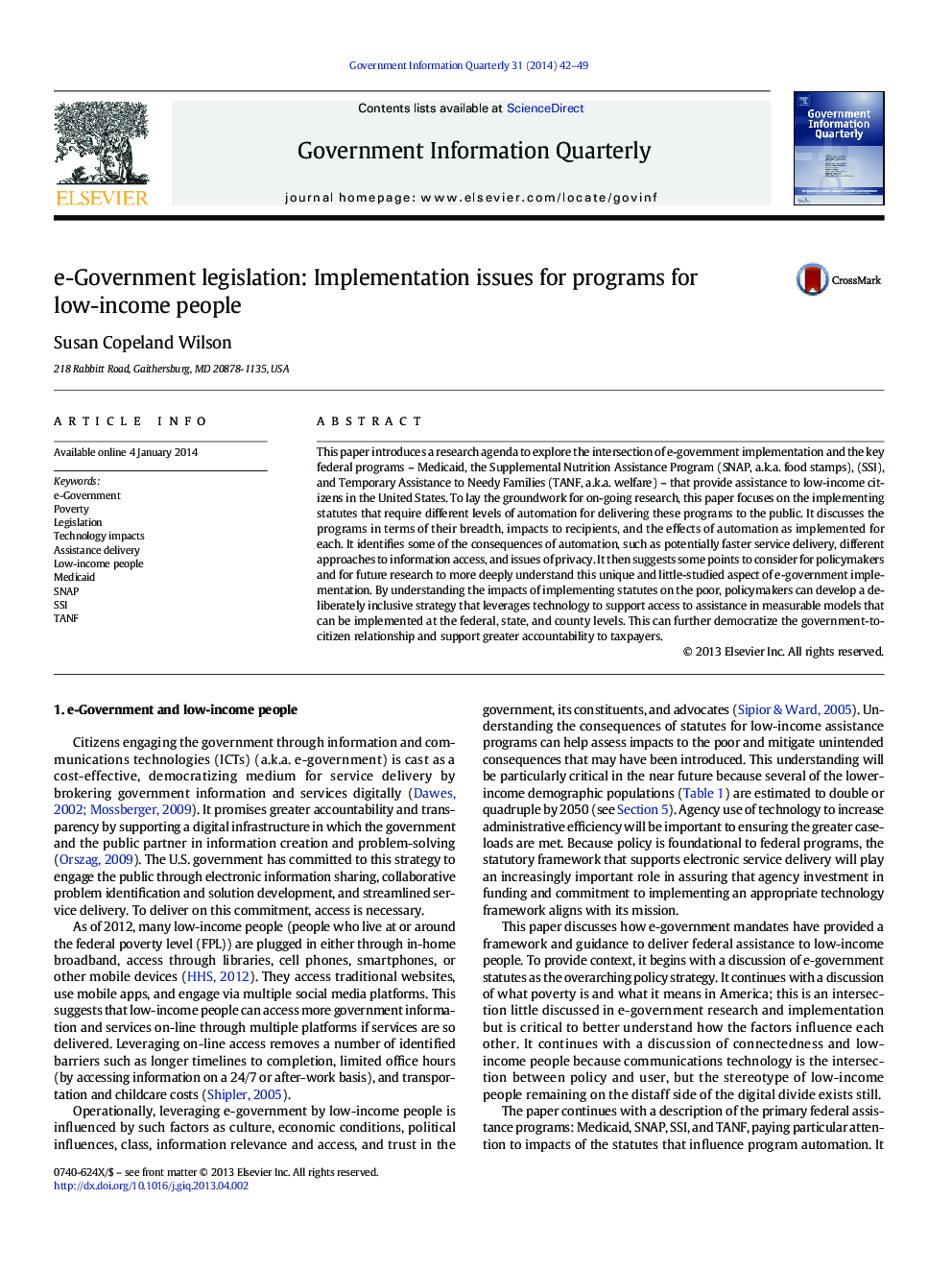| کد مقاله | کد نشریه | سال انتشار | مقاله انگلیسی | نسخه تمام متن |
|---|---|---|---|---|
| 1024450 | 941751 | 2014 | 8 صفحه PDF | دانلود رایگان |
• I open a research agenda to explore the intersection of e-government and low-incomepeople.
• Policy has not yet sufficiently supported electronic service delivery to low-incomepeople.
• Legislation should take an inclusive posture by default.
• Unaligned policy, little interoperability, inconsistent requirements impede efficiencies.
• Research is needed to understand the demographic and administrative requirements.
This paper introduces a research agenda to explore the intersection of e-government implementation and the key federal programs – Medicaid, the Supplemental Nutrition Assistance Program (SNAP, a.k.a. food stamps), (SSI), and Temporary Assistance to Needy Families (TANF, a.k.a. welfare) – that provide assistance to low-income citizens in the United States. To lay the groundwork for on-going research, this paper focuses on the implementing statutes that require different levels of automation for delivering these programs to the public. It discusses the programs in terms of their breadth, impacts to recipients, and the effects of automation as implemented for each. It identifies some of the consequences of automation, such as potentially faster service delivery, different approaches to information access, and issues of privacy. It then suggests some points to consider for policymakers and for future research to more deeply understand this unique and little-studied aspect of e-government implementation. By understanding the impacts of implementing statutes on the poor, policymakers can develop a deliberately inclusive strategy that leverages technology to support access to assistance in measurable models that can be implemented at the federal, state, and county levels. This can further democratize the government-to-citizen relationship and support greater accountability to taxpayers.
Journal: Government Information Quarterly - Volume 31, Issue 1, January 2014, Pages 42–49
